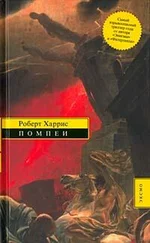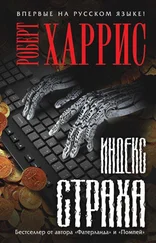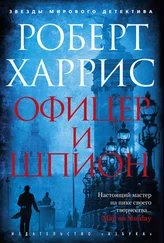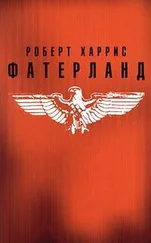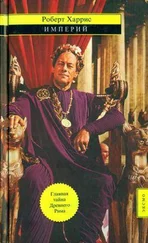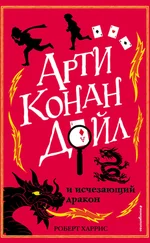The document was a directive from Hitler: War on Two Fronts with Main Effort in the South-east, Strategic Concentration ‘Green’.
‘Where on earth did you get this?’
‘It was put through my letterbox at home about thirty minutes ago.’
‘By whom?’
‘I didn’t see them. A man in a car. Two men, actually.’
‘And there was no message?’
‘None.’
Cadogan cleared a space on the table, laid the document in front of him and bent his disproportionately large head over it. He read with intense concentration, his fists pressed to his temples. His German was good: he had been in charge of the embassy in Vienna in the summer of 1914 when Archduke Franz Ferdinand was assassinated.
It is essential to create a situation within the first two or three days which demonstrates to enemy states which wish to intervene the hopelessness of the Czech military position...
The army formations capable of rapid employment must force the frontier fortifications with speed and energy, and must break very boldly into Czechoslovakia in the certainty that the bulk of the mobile army will be brought up with all possible speed...
The main strength of the Luftwaffe is to be employed for a surprise attack against Czechoslovakia. The frontier is to be crossed by aircraft at the same time as it is crossed by the first units of the Army...
As he finished each page, Cadogan turned it over and placed it neatly to his right. When he reached the end of the document, he squared the pages. ‘Extraordinary,’ he murmured. ‘I suppose the first question we have to ask ourselves is whether it’s genuine.’
‘It certainly seems it to me.’
‘I agree.’ The Permanent Under-Secretary inspected the top page again. ‘So this was drawn up on the thirtieth of May.’ He ran his finger under the German, translating: ‘“ It is my unalterable decision to smash Czechoslovakia by military action in the near future... ”’ That certainly sounds like Hitler. In fact, it’s almost word for word what he said to Horace Wilson this morning.’ He sat back. ‘So if we work on the assumption it’s genuine, which I think we may, the next questions that arise are essentially threefold: who gave it to us, why did they give it to us, and more particularly — why did they give it to you ?’
Once again, Legat experienced a peculiar sensation of guilt, as if, merely by possessing the document, his loyalty had been compromised. He preferred not to think where it might have come from. ‘I’m afraid I can’t answer any of those.’
‘As far as the matter of who gave it to us is concerned, we know there certainly is some sort of opposition to Hitler. Several opponents of the regime have been in contact with us over the summer, claiming they would be willing to overthrow the Nazis if we were to guarantee to stand firm over Czechoslovakia. I can’t say they’re a very coherent group — a few disaffected diplomats and some aristocrats who want to restore the monarchy. This is the first time we’ve actually received anything specific from them — not that it tells us much that we don’t already know. Hitler wants to destroy Czechoslovakia, and he wants to do it quickly — hardly news.’ He took off his spectacles and sucked on the stem. He studied Legat with detachment. ‘When were you last in Germany?’
‘Six years ago.’
‘Have you kept in touch with anyone over there?’
‘No.’ It at least had the merit of being true.
‘You were in Vienna, as I recall, after your first attachment to the Central Department — is that right?’
‘Yes, sir, from thirty-five to thirty-seven.’
‘Friends there?’
‘Not especially. We had a small child and my wife was pregnant with our second. We tended to keep to ourselves.’
‘What about the German Embassy in London — do you know any of the staff here?’
‘No, not really.’
‘Then I don’t understand. How would the Germans even be aware that you work in Number Ten?’
Legat shrugged. ‘My wife, perhaps? She’s in the gossip columns occasionally. Sometimes my name’s dragged in.’ Only the other week, the Daily Express — he blushed with shame at the memory — had run an item about one of Lady Colefax’s parties, describing him as ‘among the Foreign Office’s brightest young stars, now assisting the PM’.
‘The “ gossip columns ”?’ The Permanent Under-Secretary repeated the term with distaste, as if it were something unspeakable that needed to be handled with a pair of tongs. ‘What on earth might they be?’ Legat couldn’t tell whether or not he was joking. But before he attempted to answer, there was a knock at the door. ‘Come!’
Miss Marchant was carrying a folder. ‘A telegram from Berlin has just come in.’
‘About time!’ Cadogan practically snatched it from her hand. ‘I’ve been waiting for this all evening.’ Once again he laid the document on the table and lowered his large head over it, reading so intently he seemed almost to fall into the page. He muttered under his breath. ‘Bugger... bugger... bugger! ’ Since the crisis started he had never left the office before midnight. Legat wondered how he stood the strain. After a while he looked up. ‘This is the latest from Hitler. The PM needs to see it straight away. Are you going back to Number Ten?’
‘Yes, sir.’
Cadogan replaced the telegram in the folder and gave it to him. ‘As far as the other business is concerned, I’ll put it into the system, see what our people make of it. I’m sure they’ll want to talk to you tomorrow. Give the matter some thought. Try to work out who’s behind it.’
‘Yes, sir.’
Cadogan reached for another file.
According to the Cabinet minutes, telegram 545 from Berlin ( Letter from the Reichschancellor to the Prime Minister ) was handed to Chamberlain a little after 10 p.m. The Cabinet table was full: twenty ministers in all, not counting Horace Wilson — who was attending in his capacity as Special Adviser to report on his meeting with Hitler — and the Cabinet Secretary, Edward Bridges, a bespectacled donnish figure whose father had been Poet Laureate. Most were smoking. One of the big sash windows overlooking the garden had been opened in an attempt to disperse the fug of cigars and pipes and cigarettes. A warm night breeze occasionally fluttered the papers that were spread around the table and strewn across the carpet.
Lord Halifax was speaking when Legat entered. He moved discreetly to the Prime Minister’s side and laid the telegram in front of him. Chamberlain, who was listening to the Foreign Secretary, glanced at it, nodded in acknowledgement, and gestured with a slight inclination of his head that Legat should go and sit with the other officials in the row of chairs that lined the wall at the far end of the room. Two were occupied by note-takers from the Cabinet Office, both scribbling away, the third by Cleverly. His chin was on his chest, his arms and legs crossed, his right foot twitching slightly. He looked around gloomily as Legat slipped into the seat next to him, leaned sideways and whispered, ‘What was that?’
‘The reply from Hitler.’
‘What does it say?’
‘I’m afraid I didn’t look.’
‘That was remiss of you. Let’s hope it’s good news. I’m afraid the poor PM’s having rather a sticky time of it.’
Legat had a clear sideways view of Chamberlain. He had put on his spectacles and was reading Hitler’s letter. He couldn’t see the Foreign Secretary, who was sitting opposite the PM, but his voice was unmistakable, with its rolling ‘r’s’ and its tone of confident moral authority, as if he were speaking from some invisible pulpit.
Читать дальше


